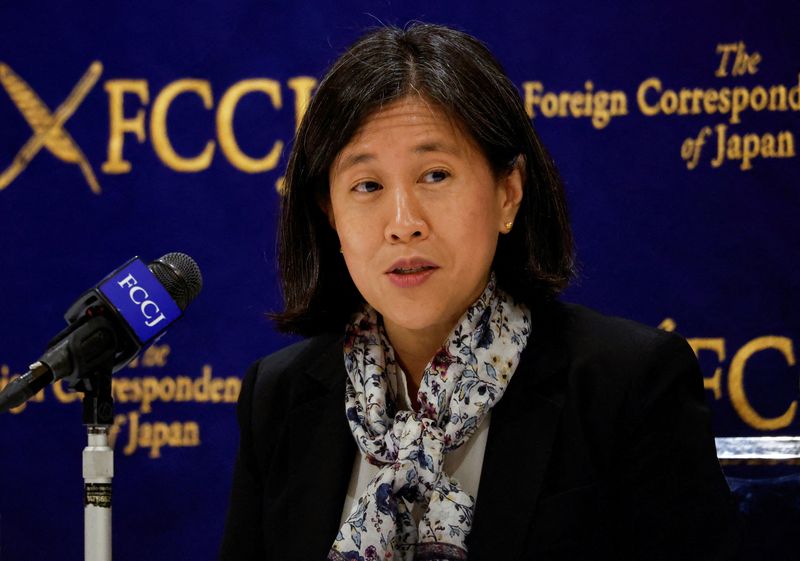US-led IPEF does not conflict with other trade pacts -USTR’s Tai
2023.04.25 12:32

© Reuters. FILE PHOTO: U.S. Trade Representative Katherine Tai attends a news conference at Foreign Correspondents’ Club of Japan in Tokyo, Japan April 20, 2023. REUTERS/Issei Kato/File Photo
TOKYO (Reuters) – U.S. Trade Representative Katherine Tai said on Tuesday the Biden administration’s signature Asian engagement project called the IPEF is designed to create no conflict with other trade agreements in the region, where China is expanding its clout.
The Indo-Pacific Economic Framework (IPEF), which U.S. President Joe Biden launched last May, is aimed at countering China’s efforts to expand its economic influence in the region.
Countries in the IPEF talks include Australia, Brunei, Fiji, India, Indonesia, Japan, South Korea, Malaysia, New Zealand, the Philippines, Singapore, Thailand and Vietnam. Together with the U.S., the participants represent some 40% of global GDP.
The region already has several free-trade agreements including the China-backed Regional Comprehensive Economic Partnership (RCEP), which groups 15 Asia-Pacific economies including Australia and Japan.
“The unifying theme in the IPEF engagements go to economic issue areas and topics, where by collaboration, the United States and these partners in the Indo-Pacific can promote more resilient, more sustainable and more inclusive economies,” Tai told an online news conference.
“In that sense, I do not see this as being in conflict with other types of arrangements.”
Tai described economic ties between the United States and China as “complex and complicated,” and underscored the importance of addressing the complexities and challenges between them not just for the two nations, but for the world.
“It is going to be important for us … to recognise that as the world’s two largest economies, we have a responsibility to our own workers, businesses and also to the world to get things right between us,” she said.








